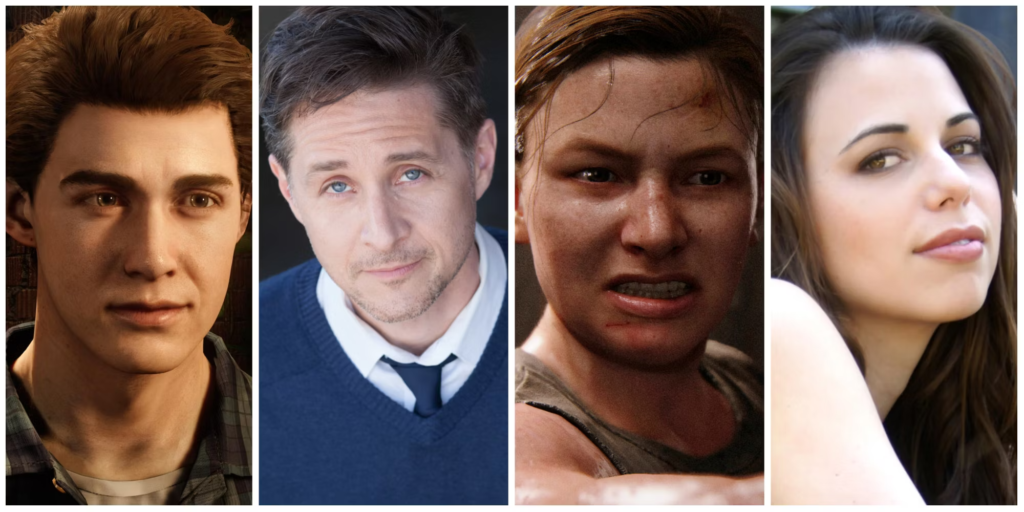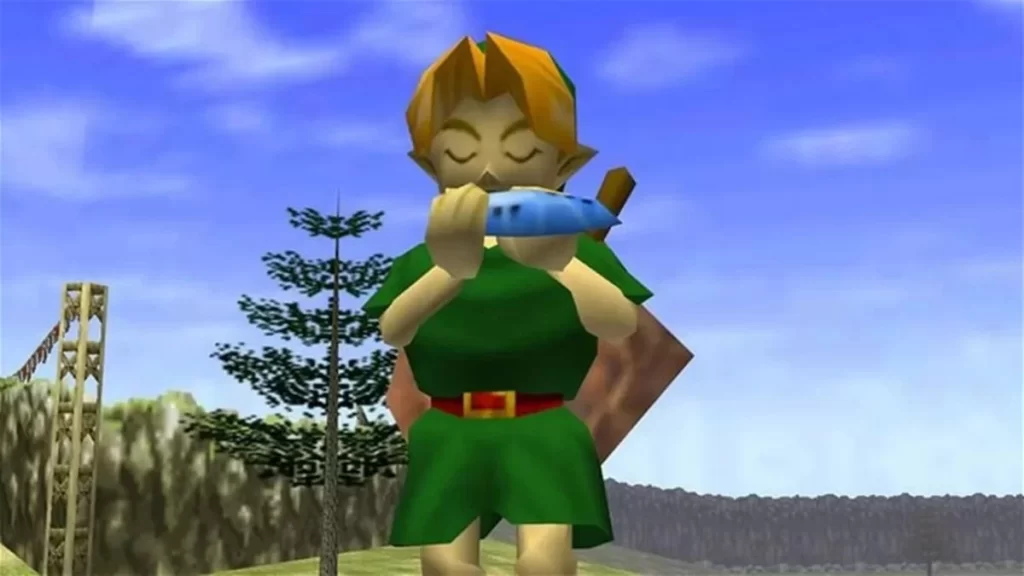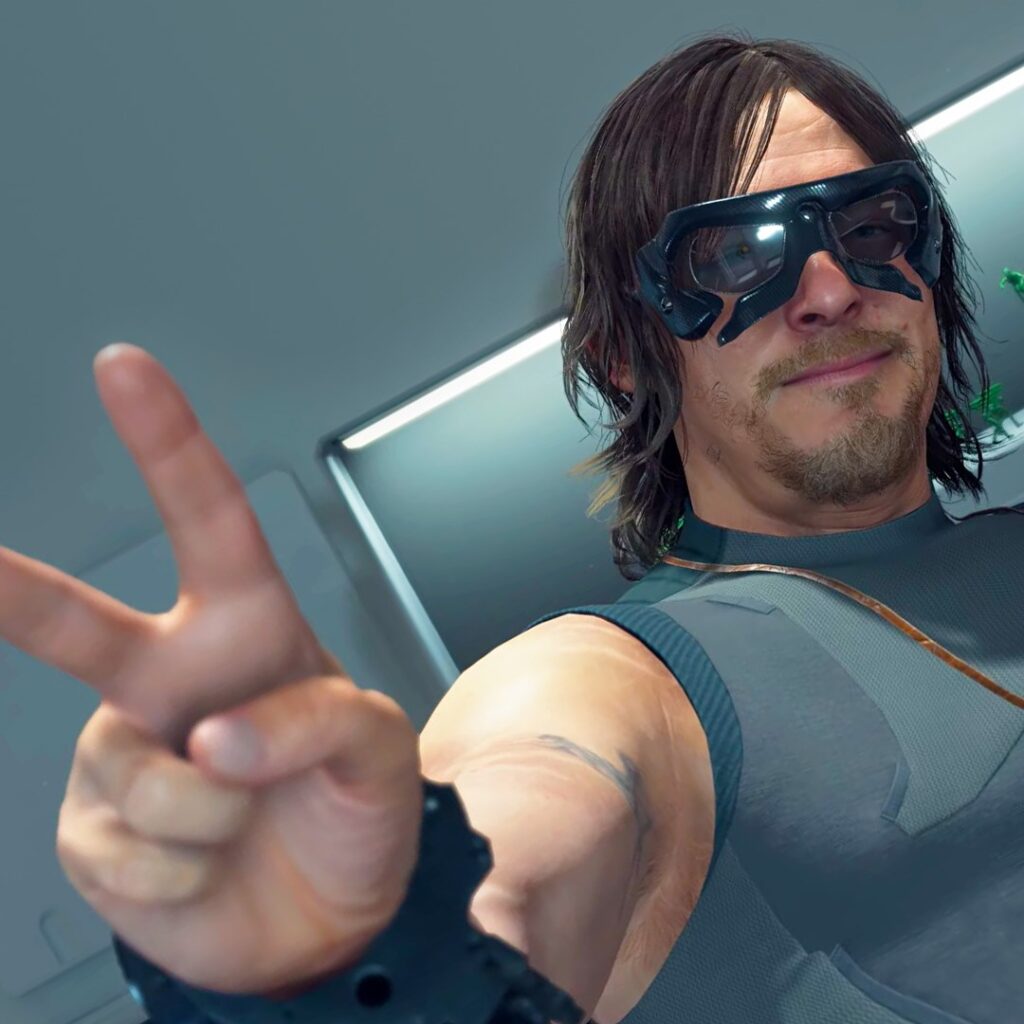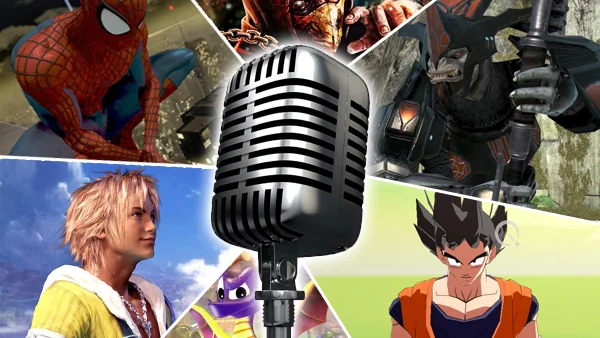In the world of video games, much of the magic happens behind the scenes, and one key element that often goes underappreciated is the work of video game voice actors. These talented individuals bring our favorite characters to life, giving them distinct personalities, emotions, and memorable catchphrases.
You see, according to a report from GamesIndustry.biz, the voice acting industry within gaming has seen exponential growth – with some actors even becoming as famous (if not more) as the characters they portray!
In this article, we will explore the world of video game voice actors, discussing their history, the famous names in the industry, the challenges they face, and what the future holds for this profession.
Read as well: The appeal of 2D games with 3D models
The history of video game voice acting

From text to speech
In the early days of gaming, video game voice acting was a non-existent concept. Games were largely text-based, relying on simple sound effects and written dialogue to tell stories. Think back to Space Invaders (1978), where the iconic alien invasion was communicated entirely through pixelated graphics and repetitive sound effects. Voice acting wasn’t a consideration back then; the technology simply wasn’t advanced enough to support spoken dialogue.
However, as technology evolved, so did the art of video game production. In the 1980s and 1990s, digitized speech began to find its way into games. One of the earliest examples of this was Berzerk (1980), which used synthesized voice lines to taunt players with phrases like “Intruder alert!” Though rudimentary by today’s standards, this marked the beginning of a revolution that would eventually lead to fully voiced characters and the rise of video game voice actors as integral parts of the gaming experience.
The rise of voice acting in video games
By the mid-1990s, with the advent of CD-ROM technology, voice acting in games became more prominent. Titles like The Legend of Zelda: Ocarina of Time and Metal Gear Solid introduced players to characters with distinctive voices, dramatically enhancing the emotional depth and narrative engagement of games. Metal Gear Solid, in particular, is often credited with revolutionizing voice acting in video games, thanks to the unforgettable performance of David Hayter as Solid Snake. From this point onward, video game voice actors began to be seen as crucial contributors to a game’s success, and their roles only continued to grow in importance.

Famous names in video game voice acting
Some video game voice actors have reached legendary status within the industry, often becoming as recognizable as the characters they portray. These actors possess not only incredible vocal talent but also the ability to fully embody a wide range of characters, from fearless heroes to sinister villains. Below are some of the most well-known names in video game voice acting:
- Nolan North: Known primarily for his role as Nathan Drake in the Uncharted series, North’s witty and charismatic delivery has made Nathan Drake one of gaming’s most beloved characters. He has also lent his voice to characters in Assassin’s Creed (Desmond Miles) and Destiny (Ghost).
- Troy Baker: Baker is perhaps best known for his portrayal of Joel in The Last of Us, where he delivered an emotionally raw and nuanced performance. He has also voiced characters like Booker DeWitt in BioShock Infinite and Pagan Min in Far Cry 4.
- Ashley Johnson: As the voice of Ellie in The Last of Us, Johnson captured the hearts of players worldwide. Her performance, full of vulnerability and strength, helped elevate the game to critical acclaim. She has also voiced characters in Tales from the Borderlands and Marvel’s The Avengers video game.
- Jennifer Hale: One of the most versatile video game voice actors in the industry, Hale is best known for her role as Commander Shepard in Mass Effect. She has also voiced characters in Star Wars: Knights of the Old Republic and Overwatch.
The power of versatility
What sets these video game voice actors apart is their ability to bring a wide range of characters to life. Whether it’s a brave adventurer, a grizzled survivor, or a cunning villain, these actors use their voices to create memorable performances that stay with players long after the credits roll. Their popularity stems from their versatility, consistency, and ability to add depth to the gaming experience, making them true stars of the industry.
The challenges of video game voice acting

Technical demands
Video game voice actors face a unique set of challenges in their work. Unlike film or TV acting, where actors can rely on facial expressions and body language to convey emotions, voice actors must express everything through their voice alone.
Achieving the right emotional range is essential, especially when they may be required to record dozens of lines in quick succession. Additionally, they must often synchronize their lines with the on-screen action, which requires perfect timing and consistency across multiple takes.
Physical demands
The physical toll of video game voice acting can be significant. Many voice actors have reported vocal strain, particularly when recording scenes that require shouting, fighting, or intense emotional outbursts. Video game voice actors are also often required to perform for hours on end, which can lead to fatigue and even long-term vocal damage if not managed properly.
Industry challenges
The world of video game voice acting is not without its difficulties. Job security can be a major concern, as most actors work on a freelance basis and must continuously audition for new roles.
Pay can also be inconsistent, with some actors struggling to secure compensation that matches the amount of work they put in. In recent years, video game voice actors have also raised concerns about the lack of residual payments, which are standard in other entertainment industries like film and television.
Video game voice actors: behind the 3 career stages

Auditioning
The path to becoming a video game voice actor begins with the audition. Actors typically receive a script with little to no context about the game or character, forcing them to rely on their creativity and intuition to deliver a performance that stands out.
Auditions are often recorded remotely, with actors sending in audio files for review. If selected, they may be called back for additional auditions or directly hired for the role.
Recording sessions
Once hired, video game voice actors head to the recording studio, where the actual work begins. Directors and coaches provide guidance on tone, emotion, and pacing, helping the actors achieve the desired performance.
Recording sessions can be grueling, with multiple takes of the same line required to ensure the right delivery. Actors may also need to record “effort” sounds, such as grunts, screams, and sighs, which can be physically demanding.
Post-production
After the voice lines are recorded, sound engineers and editors work their magic. They ensure that the dialogue fits seamlessly within the game, adjusting the timing, pitch, and quality as needed. Post-production is where the voices of video game voice actors are truly transformed into the final product that players experience.

The future of video game voice acting (with trivia)
The world of video game voice actors is full of fascinating stories and trivia. For example, many actors have voiced multiple characters in the same game, often switching between vastly different personalities.
This requires incredible versatility and skill. Additionally, some video game voice actors have careers that extend into other industries, such as film and television, bringing their talents to a wider audience. For instance, Nolan North has appeared in both TV and movies, demonstrating his wide range of acting abilities.
With that in mind, it’d be alright to infer that the future of video game voice acting is bright, with exciting new trends on the horizon. Motion capture technology has become increasingly prevalent – allowing video game voice actors to perform not just with their voices, but with their bodies as well. This creates more lifelike and immersive characters.
By the way, AI-generated voices are another potential development, though the technology is still in its early stages. While some fear that AI could replace human voice actors, others see it as a tool to complement and enhance the work of actors.
Localization is also becoming a major focus, as video games are now being translated and voiced in multiple languages to reach a global audience. This means even more opportunities for video game voice actors around the world – something that has been transforming video games into more emotionally engaging and narratively complex experiences for players of any nationality.
The unsung heroes: a look at video game voice actors
This article explored the fascinating world of video game voice acting, from its humble beginnings with simple sound effects to the current era of nuanced performances and global recognition. We delved into the challenges voice actors face, the demanding nature of the work, and the exciting trends shaping the future of the industry.
However, the journey doesn’t end here. If you’re as passionate about games as we are at Main Leaf, you might be curious about the development process itself.
Here at Main Leaf, we understand the power of a captivating narrative and the crucial role voice acting plays in delivering it. We collaborate closely with experienced voice actors to bring your game’s characters to life, ensuring their personalities resonate deeply with players.
Want to learn more about how we can help you transform your game idea into a reality? Explore our blog for insightful articles on game development, industry trends, and the magic behind creating unforgettable gaming experiences.
Head over to our blog today and embark on your development journey with us!

